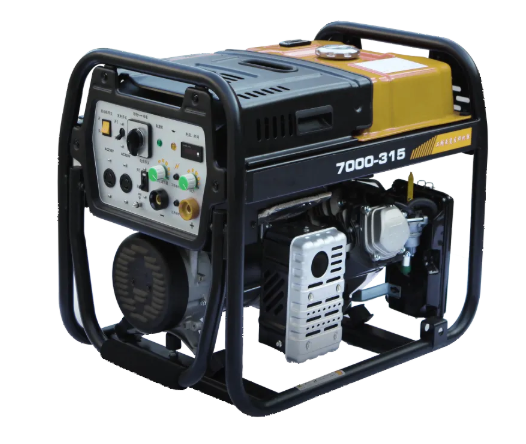Did you know that a single hour of unexpected downtime can cost large industrial facilities over $100,000 in lost production and operational impacts? In today's demanding industrial landscape, power reliability isn't just a convenience—it's the backbone of continuous operations, production targets, and financial stability. Diesel Generators serve as the unsung heroes of heavy industry, providing critical backup power that keeps operations running during outages, prevents equipment damage, and ensures safety system functionality. This comprehensive guide explores how these powerful workhorses support industrial operations across various sectors, highlighting their crucial role in maintaining productivity and protecting valuable assets.
The Critical Role of Power Reliability in Industrial Operations
The Cost of Downtime in Heavy Industry
Industrial operations face significant risks during power interruptions:
Production losses: Manufacturing lines can lose thousands per minute during stoppages
Equipment damage: Sudden power loss can damage sensitive machinery and processes
Safety compromises: Critical safety systems may fail without backup power
Data loss: Control systems and monitoring equipment may lose critical information
Why Diesel Generators Excel in Industrial Applications
Diesel Generators offer unique advantages for heavy-duty applications:
High torque capability for starting large industrial motors
Fuel efficiency compared to other generator types
Durability in harsh industrial environments
Long operational life with proper maintenance
Quick response time during power interruptions
Key Applications in Manufacturing and Processing
Continuous Process Industries
Chemical plants: Preventing reaction vessel failures and hazardous situations
Steel mills: Maintaining furnace temperatures and safety systems
Food processing: Avoiding spoilage and production line contamination
Pharmaceutical manufacturing: Protecting sterile environments and batch integrity
Discrete Manufacturing
Automotive production: Preventing assembly line stoppages
Electronics manufacturing: Avoiding sensitive equipment damage
Packaging operations: Maintaining continuous production schedules
Robotic systems: Preventing reprogramming requirements after outages
Insert application diagram: "Industrial Generator Applications" - ALT text: diesel-generator-industrial-applications-map
Mining and Extraction Industry Power Solutions
Surface Mining Operations
Drilling equipment: Maintaining continuous extraction operations
Processing plants: Preventing production interruptions
Conveyor systems: Avoiding material handling bottlenecks
Water management: Ensuring continuous dewatering operations
Underground Mining
Ventilation systems: Maintaining air quality and worker safety
Hoisting equipment: Ensuring miner safety and material transport
Communication systems: Keeping critical safety communications operational
Emergency systems: Providing power for evacuation and rescue operations
Construction and Infrastructure Project Support
Remote Site Power
Temporary power for equipment and facilities
Base camp operations supporting workforce needs
Concrete pouring requiring continuous operation
Tunneling projects with critical ventilation needs
Permanent Installation Support
Commissioning power during construction phases
Testing and validation of building systems
Temporary backup before utility connections are complete
Emergency power during construction emergencies
Data Center and Technology Facility Protection
Tier 3 and Tier 4 Data Centers
N+1 redundancy requirements for continuous uptime
2N systems providing complete backup redundancy
Instant response during utility power failures
Load bank testing for system verification
Technology Manufacturing
Clean room environments requiring constant environmental control
Semiconductor fabrication preventing multi-million dollar losses
Server farms maintaining continuous operation
Research facilities protecting ongoing experiments
Emergency Services and Critical Infrastructure
Healthcare Facilities
Hospital emergency power for life-saving equipment
Medical equipment requiring uninterrupted operation
Laboratory systems protecting research and testing
Patient care areas maintaining environmental controls
Public Safety Infrastructure
Emergency response centers maintaining communications
Water treatment plants ensuring continuous service
Transportation systems supporting traffic control and safety
Communication networks keeping critical links operational
Choosing the Right Industrial Diesel Generator
Capacity Planning Considerations
Load analysis: Calculating total connected and operating loads
Future expansion: Allowing for operational growth and new equipment
Starting requirements: Accounting for motor starting currents
Redundancy needs: Determining appropriate backup levels
Technical Specifications
Prime vs standby power ratings for different applications
Voltage requirements matching existing equipment
Frequency stability needs for sensitive equipment
Environmental conditions affecting performance
Working with an experienced Diesel Generator supplier ensures proper specification and installation for industrial applications.
Maintenance Strategies for Maximum Reliability
Preventive Maintenance Program
Scheduled servicing based on operating hours
Load testing to verify performance capability
Fuel quality management preventing system contamination
Component replacement before failure occurs
Monitoring and Testing
Remote monitoring for real-time performance tracking
Automatic testing during scheduled maintenance windows
Performance trending to identify developing issues
Emergency start testing verifying system readiness
Insert maintenance schedule: "Industrial Generator Maintenance Plan" - ALT text: diesel-generator-maintenance-schedule-industrial
Future Trends in Industrial Power Generation
Technology Advancements
Digital integration with plant management systems
Advanced emissions control meeting stricter regulations
Hybrid systems combining with renewable energy sources
Predictive maintenance using AI and machine learning
Sustainability Initiatives
Biofuel compatibility reducing carbon footprint
Energy efficiency improvements through advanced technology
Noise reduction technologies for urban installations
Waste heat recovery improving overall efficiency
For operations requiring immediate solutions, many Diesel Generator supplier companies maintain Diesel Generator in stock configurations suitable for industrial applications.
Conclusion and Next Steps
Diesel Generators remain indispensable for heavy-duty industrial operations, providing reliable backup power that protects investments, ensures safety, and maintains productivity. The right generator system, properly maintained and operated, can mean the difference between minor inconvenience and catastrophic operational failure.
As industrial operations continue to evolve with increasing automation and technology integration, the role of reliable backup power becomes even more critical. Investing in the right Diesel Generator solution today ensures your operation remains productive and protected tomorrow.
Ready to Secure Your Industrial Operations? Our team of industrial power experts has helped over 1,500 facilities design and implement reliable backup power solutions. [Contact us today for a free operational assessment and generator recommendation]. Protect your investment with power solutions designed for industrial demands.
Table of Contents
- The Critical Role of Power Reliability in Industrial Operations
- Key Applications in Manufacturing and Processing
- Mining and Extraction Industry Power Solutions
- Construction and Infrastructure Project Support
- Data Center and Technology Facility Protection
- Emergency Services and Critical Infrastructure
- Choosing the Right Industrial Diesel Generator
- Maintenance Strategies for Maximum Reliability
- Future Trends in Industrial Power Generation
- Conclusion and Next Steps

